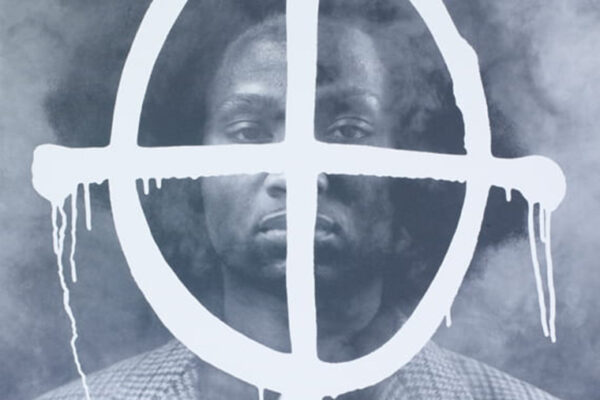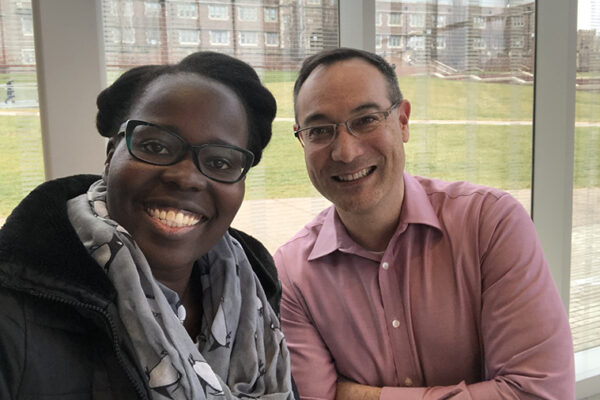‘Truths and Reckonings’
“Amnesia is not the right word,” said Geoff K. Ward, “because we’ve forgotten without ever really knowing.” In “Truths and Reckonings,” the show he curated for Washington University’s Kemper Art Museum, Ward confronts histories of racist violence with the aim of untangling their continuing legacies.
Class explores intersection of law, race and design
Law and graphic design. Not necessarily two disciplines one thinks of as being related. But a new class at Washington University in St. Louis is using concepts from each to help students wrestle with the challenges of race, place and inequality.
Book traces history of racism, race-based pseudoscience
When it comes to race, too many people still mistake
bigotry for science, argues Washington University in St. Louis
anthropologist Robert W. Sussman, PhD, in his new book, “The Myth of
Race: The Troubling Persistence of an Unscientific Idea.”
Campus Author: New Book Explores Boundaries of Colorism
For Kimberly Jade Norwood, Washington University professor of law and African & African American studies, the topic of her newly released book, Color Matters: Skin Tone Bias and the Myth of a Postracial America (Routledge, 2013), strikes close to home.
Discussion on gender and race in ‘age of Trayvon Martin’ opens AFAS fall colloquium series
A panel discussion, titled “Conversations on Gender and Blackness in the Age of Trayvon Martin,” will open WUSTL’s African and African-American Studies fall colloquium series at 10:30 a.m.-12:30 p.m. Friday, Sept. 6, in the Women’s Building Formal Lounge. WUSTL faculty will lead the discussion, which includes a coffee reception at 10 a.m.
Newly established McLeod Writing Prize awarded to first freshmen
The first-ever Dean James E. McLeod Freshman Writing Prize has been awarded, and the inaugural winners are Senit Kidane and Claudia Vaughan. McLeod was a longtime WUSTL leader who died in 2011. The Center for the Humanities provided funding for the contest, and any freshman in the College of Arts & Sciences could submit work for consideration. Original research papers exploring an aspect of race, gender or identity and created for a freshman course were eligible.
Political scientist Cohen to speak April 9
Author and political scientist Cathy Cohen studies American politics and particularly how they affect African-Americans, women and the LGBTQ community – never ignoring the intersections between these identity categories. She will be on campus April 9 to give a lecture titled “Race, Sex and Neoliberalism in the Age of Obama.”
Community forum on U.S. prison system offered Nov. 8
A group of Washington University students, in collaboration with the Missouri History Museum and Gephardt Institute of Public Service, will present a two-part community forum on the evolution of the U.S. prison-industrial complex titled “The Criminal Brand: America’s Invisible Class,” at 6 p.m. on Thursday, Nov. 8 at the Missouri History Museum.
Political empowerment fading for black Americans in the age of Obama
Hailed by some as the “end of race as we know it” and
the beginning of a “post-racial” America, the 2008 election of Barack
Obama sparked a measurable bump in feelings of political empowerment
among black Americans. But those sentiments have faded considerably over
the last year or so, according to a new analysis of political survey
data, with the sharpest declines in perceived political power coming
among blacks who identify themselves as conservatives or “born again”
Christians.
Study looks at discrimination’s impact on smoking
Smoking, the leading preventable cause of mortality in the United States, continues to disproportionately impact lower income members of racial and ethnic minority groups. In a new study published in the American Journal of Public Health, Jason Q. Purnell, PhD, assistant professor at the Brown School at Washington University in St. Louis, looked at how perceived discrimination influences smoking rates among these groups. “We found that regardless of race or ethnicity, the odds of current smoking were higher among individuals who perceived that they were treated differently because of their race, though racial and ethnic minority groups were more likely to report discrimination,” he says.
View More Stories


